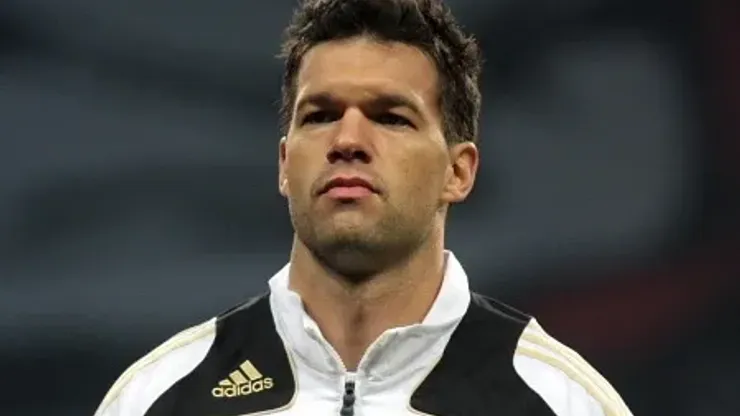Michael Ballack’s stint at Chelsea has come to an end, and he has a full trophy cabinet to show for it. Since 2006, when he joined Chelsea, Ballack has won one Premier League trophy, three FA cups, one Carling Cup, one FA Community Shield, and a Champions League runners-up medal.
This summer, Michael Ballack’s contract ran out and Chelsea opted not to extend it. Ballack received multiple offers, but eventually joined Bayer Leverkusen, the club he made his name at in his early twenties. After 105 league appearances at Chelsea, Ballack really failed to make a positive impression in North London. Ballack, who was tipped to succeed Lothar Matthaus as the next German great who would then lead Germany into a new golden age of success, has been unimpressive during his last few years in England.
His lack of form picked up towards the end of the 2009-2010 season with Ballack looking to impress national team coach Joachim Loew and assure his place in the German national team for the 2010 World Cup, but an injury ruled him out of the tournament.
Ballack has returned to familiar territory with Bayer Leverkusen, a team he played for for three seasons from between 1999 and 2002. Ballack will be surrounded by players who respect him and look up to him and he will no doubt flourish in the Bundesliga for the next couple of seasons.
This is all fine and dandy. It by no means, however, means that Ballack should take the captain’s armband at the national level or be chosen in the team ahead of Sami Khedira. Philipp Lahm, during the World Cup, had the whole dressing room behind him and led a young side out against some of the world’s top sides and stared them down and defeated them. Taking Ballack back and making him the central figure would be a step backwards. Ballack will turn 34 in September, so by the time the European Championships roll around, Ballack will be in the twilight of his career at age 36. Stripping Lahm of the captaincy just so Ballack can wear it for a couple of years is certainly not a move for the future of the German national team.
Lahm, at 26, has at least one more World Cup and probably two more European Championships left in him. Allowing him to keep the captain’s armband would be the better decision in the long run. Stripping Lahm of the captaincy just so Ballack can wear it for two years and then giving it back to Lahm will just create indecision and dysfunction in the dressing room, especially between Lahm and Ballack.
Now there is the issue of Sami Khedira. Schweinsteiger is a near guarantee in the midfield for Germany; the Bayern Munich man was fantastic at the World Cup and has finally come of age. He will most likely keep his place in the center of midfield for Germany for many years to come, but there must be a decision made on who should partner Schweinsteiger at the heart of German national team.
Lahm Should Remain National Team Captain And Lead The Team Into The Future Of German Football.
During the World Cup, Sami Khedira took the role after Ballack’s injury and duly impressed. Khedira and Schweinsteiger were one of the standout central midfield partnerships during the tournament, and Khedira’s ability has even recently secured him a move to Real Madrid where he will blossom into a fantastic player for the German national team. Now, at just 23 years old, Khedira could feature at two more World Cup tournaments for Germany and has shown that he has the skill and the positional sense to be able to effectively replace Ballack in the center of midfield for the national side. Under the guidance of Jose Mourinho at Real Madrid, Khedira will only get better. By the time the European Championships roll around in two years, Khedira will be in his prime and Ballack will be on his last legs.
Clearly, then, Khedira’s spot in the team should not be under threat by Michael Ballack. While Ballack may feature in qualifying matches for the European Championship, he should not be starting in what is now Sami Khedira’s position should the young midfielder continue to fulfill his potential. Also, Lahm should remain captain of the national side for the foreseeable future on the basis of the leadership qualities he exhibited during the World Cup, and the consistency that his captaincy will bring to the team.
200+ Channels With Sports & News
- Starting price: $33/mo. for fubo Latino Package
- Watch Premier League, Women’s World Cup, Euro 2024 & Gold Cup
The New Home of MLS
- Price: $14.99/mo. for MLS Season Pass
- Watch every MLS game including playoffs & Leagues Cup
Many Sports & ESPN Originals
- Price: $10.99/mo. (or get ESPN+, Hulu & Disney+ for $14.99/mo.)
- Features Bundesliga, LaLiga, Championship, & FA Cup
2,000+ soccer games per year
- Price: $5.99/mo
- Features Champions League, Serie A, Europa League & Brasileirāo
175 Premier League Games & PL TV
- Starting price: $5.99/mo. for Peacock Premium
- Watch 175 exclusive EPL games per season







